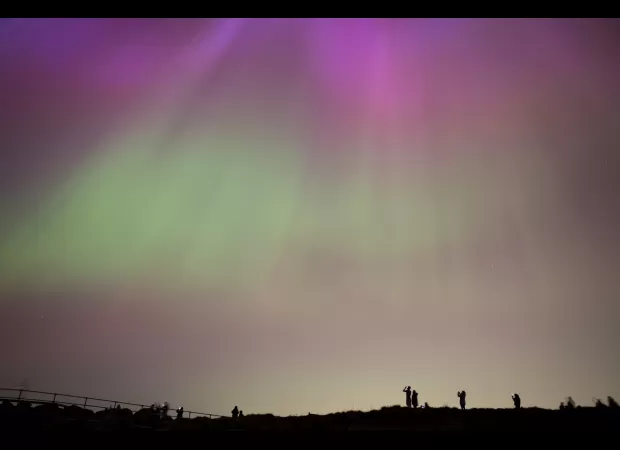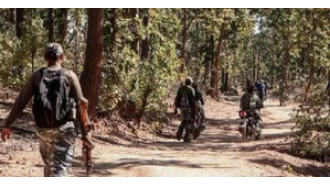Could we see the Northern Lights this week?
The Sun's actions in the coming days will determine everything.

Over the weekend, people flocked to St Mary's lighthouse in Whitley Bay in hopes of catching a glimpse of the elusive northern lights. This was the first time in 20 years that the aurora borealis was visible across the UK, even making an appearance over London's bright city lights.
The most spectacular display occurred on Friday night, but those who missed it were also treated to a catch-up show on Saturday. However, for those who weren't able to see the lights this weekend, they may be wondering if they've missed their chance altogether.
Unfortunately, the answer is most likely yes. While the chances of seeing the northern lights are still higher than normal due to increased solar activity, the massive solar storm that caused the displays has now died down. In addition, the current weather conditions are not as favorable, with rain clouds making it harder to see the lights compared to the clear skies over the weekend.
We spoke to Professor Jim Wild, a space physicist from the University of Lancaster, about the possibility of still spotting the lights from our own backyards. He mentioned that there was some activity around 5:30 am this morning, but only the most dedicated aurora hunters would have been awake at that hour. And even then, it would not have been as dazzling as the displays seen over the weekend.
Although solar activity is returning to normal levels, there is still a chance of seeing the lights if the sun emits more material in the coming days. Professor Wild explained that the incredible displays seen on Friday and Saturday were triggered by solar activity that occurred last Wednesday, and it takes a couple of days for the material to reach Earth. There may be more material on its way, but it's uncertain if it will be as powerful as the previous displays.
But the northern lights aren't just a beautiful sight - they can also cause disruptions to infrastructure. While the general public may be more interested in the stunning photos, governments are more concerned about the effects of a massive solar storm. The biggest recorded storm was the "Carrington Event" in 1859, which was three to four times larger than the recent one. It caused disruptions to communication systems and power grids, highlighting the need for resilience in today's society.
Although this weekend's storm didn't cause any major disruptions, the possibility of future events has industries thinking about building resilience. As for predicting when the northern lights will be visible again, it's difficult to say for sure. However, the good news is that any major solar flares will give a day or two's notice before the lights begin.
For those who don't want to miss the next display, they can sign up for alerts from AuroraWatch UK, which has a four-tier system indicating the likelihood of seeing the lights. And for those who receive an alert and want to confirm if they'll be able to see anything, a quick search on social media for "northern lights" and their location may provide some insight, as people are likely to share their sightings.
If there is a chance of seeing the lights, it's best to be away from sources of light pollution and to view them during the night when the skies are dark. Keep in mind that cameras will capture the lights better than the naked eye, especially with long exposure settings.
But what about tonight? Is there still a chance to see the northern lights? While it's unlikely, it's not impossible. Keep an eye out for any changes in solar activity and be prepared with your camera just in case.
As the weekend's stunning aurora photos flood Instagram, it's hard to believe that we may have to wait another 20 years for a chance to see them from our own homes. However, Professor Wild assures us that this weekend's displays were truly exceptional. In fact, he mentioned that he has seen displays in the far North that weren't as impressive as what he saw from Lancaster.
But if you weren't able to witness the lights this time around, don't be too disheartened. Even Professor Wild admits that the most incredible lights he's ever seen were so bright that they cast a shadow on the ground. And with the unpredictability of the sun's activity, who knows when the next spectacular display will occur.
In the meantime, the Met Office advises that the chances of seeing the aurora borealis in the UK are decreasing, especially with the current weather conditions. But don't let that stop you from keeping an eye out - you never know when the northern lights will make an appearance.
8 Views






